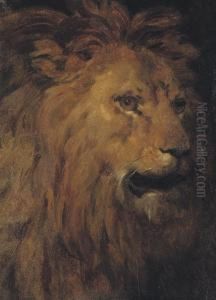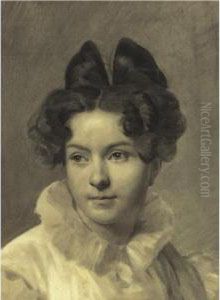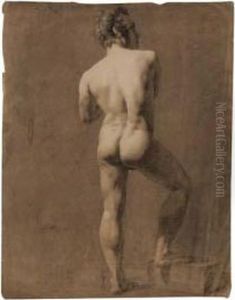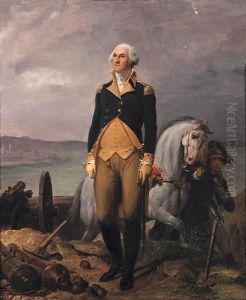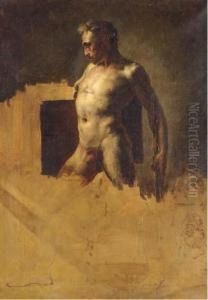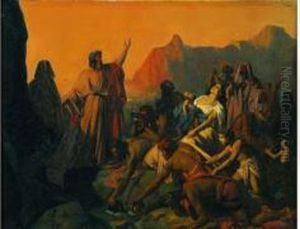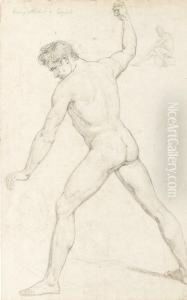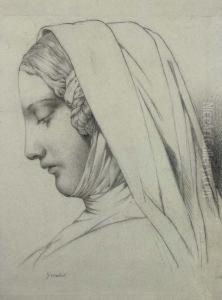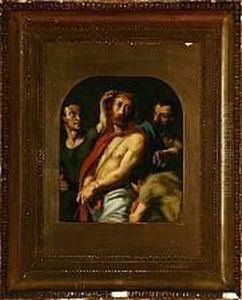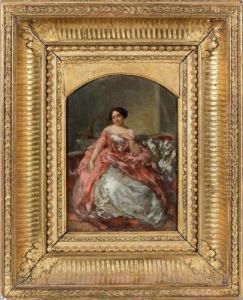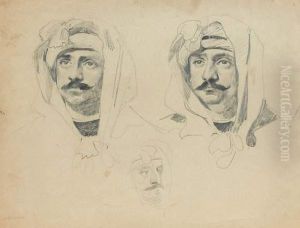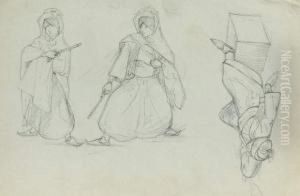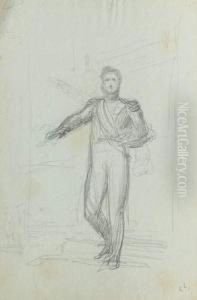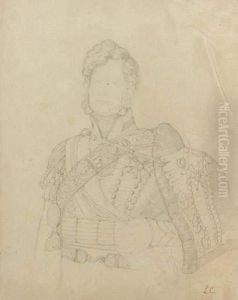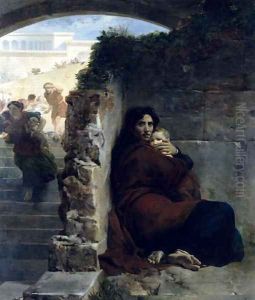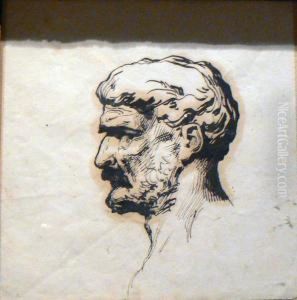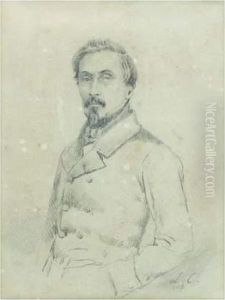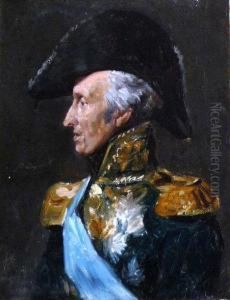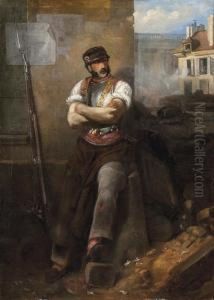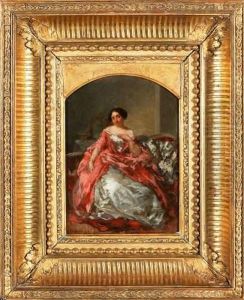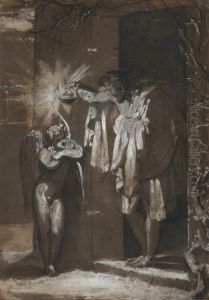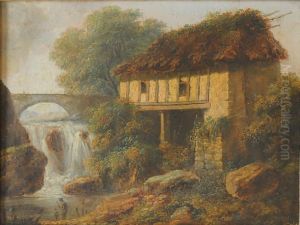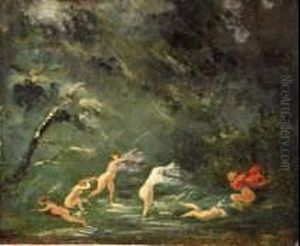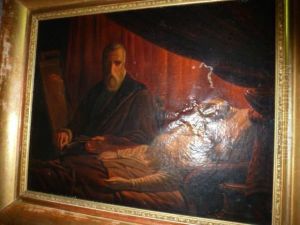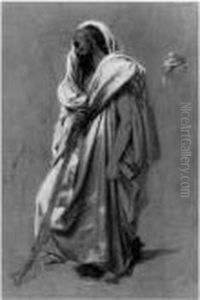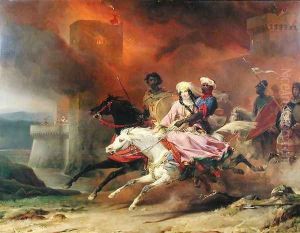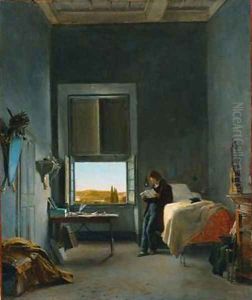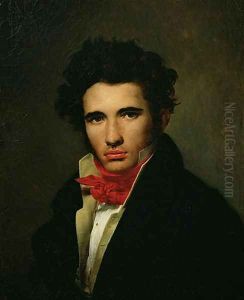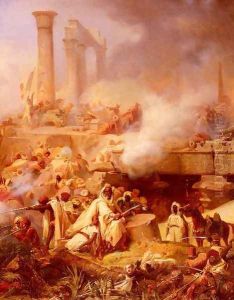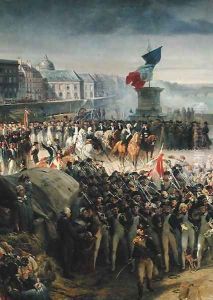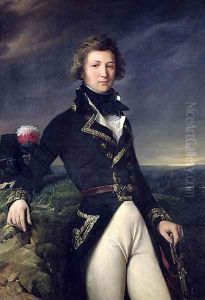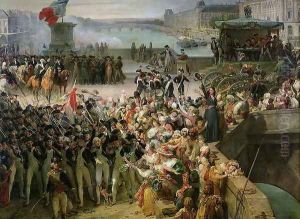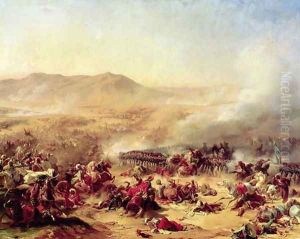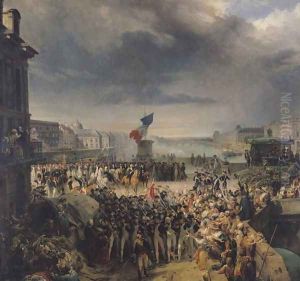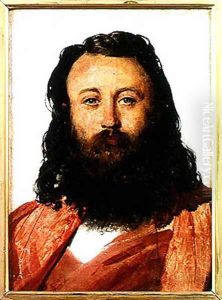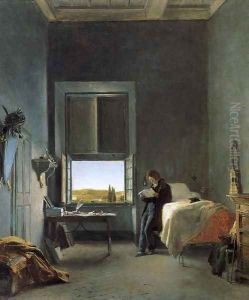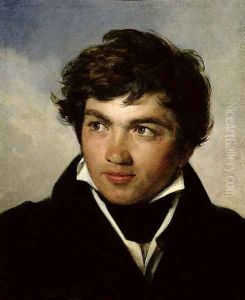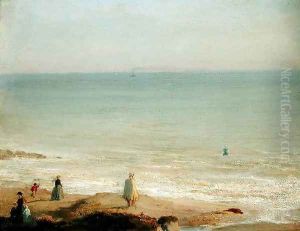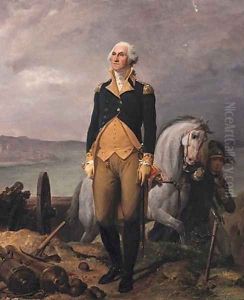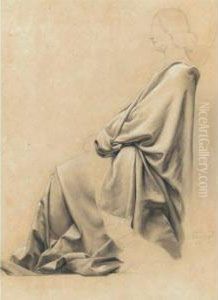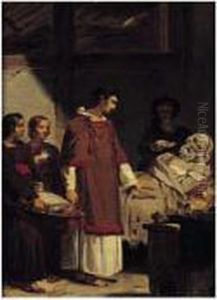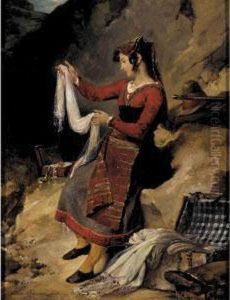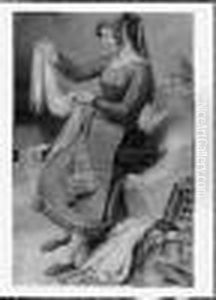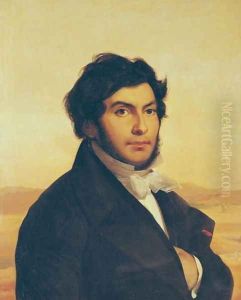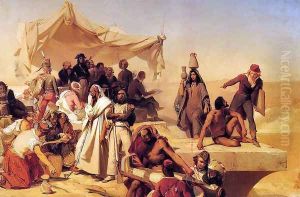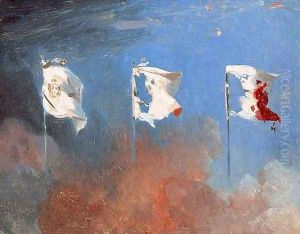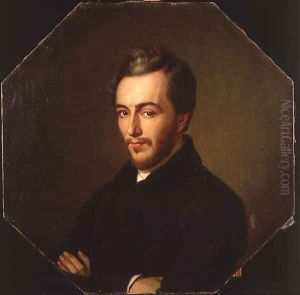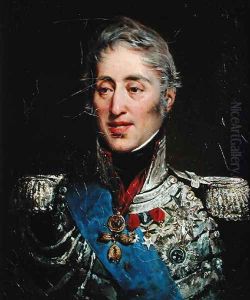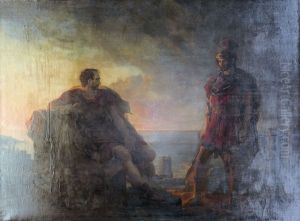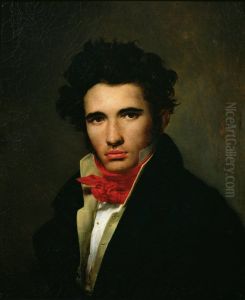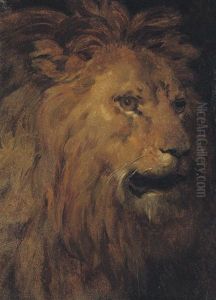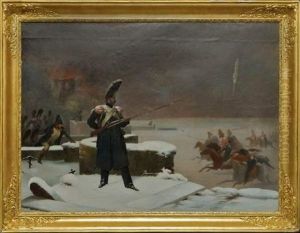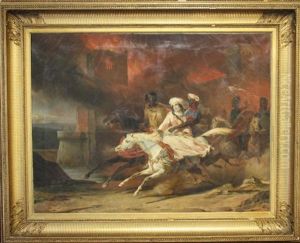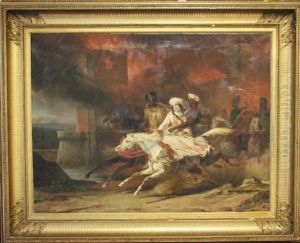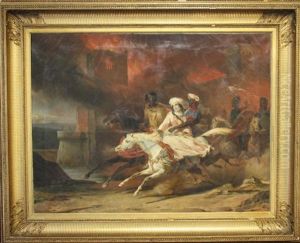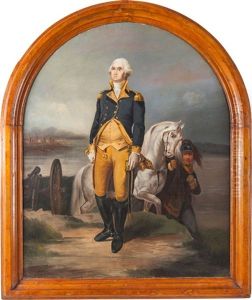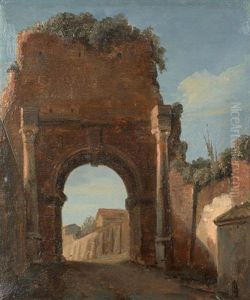Leon Cogniet Paintings
Leon Cogniet was a prominent French historical and portrait painter born on August 29, 1794, in Paris. He was a leading figure in 19th-century French art and is known for his academic style and mastery of drawing. Cogniet's education in art began under the tutelage of his father, who was a minor painter. He then entered the Ecole des Beaux-Arts in Paris and studied under the neoclassical painter Pierre-Narcisse Guérin, who also mentored other significant artists such as Eugène Delacroix and Théodore Géricault.
Cogniet's talent was recognized early in his career, and he garnered several awards, including the prestigious Prix de Rome in 1817 for his painting 'The Resurrection of the King’s Son by Elisha.' This accolade afforded him the opportunity to study in Rome, which was a formative experience that greatly influenced his style and subject matter. While in Italy, he was exposed to the works of Renaissance masters, and he developed an appreciation for the grandeur and drama of historical scenes.
Upon his return to France, Cogniet began receiving commissions for large-scale history paintings, a genre that was highly regarded at the time. He painted several notable works, including 'Tintoretto Painting His Dead Daughter,' which reflects his fascination with the lives of other artists and the process of painting itself. He was also known for his series of paintings depicting episodes from the French Revolution, which were celebrated for their emotional intensity and technical prowess.
Throughout his career, Cogniet remained engaged with the art community in Paris and was an influential teacher. He taught at the Ecole des Beaux-Arts for many years, where he influenced a generation of artists, including Camille Pissarro and Léon Bonnat. His teaching emphasized the importance of drawing and the study of classical and Renaissance art, which remained the backbone of academic art training during his tenure.
Cogniet's work began to decline in popularity towards the end of his life as the art world shifted towards Realism and Impressionism, movements that rejected the academic style's focus on historical and mythological subjects. Despite this, his impact on French art and his role as an educator left a lasting legacy.
Leon Cogniet passed away on November 20, 1880, in Paris. Today, his works can be found in various museums and collections around the world, where they continue to be studied and appreciated for their historical significance and technical accomplishment.
